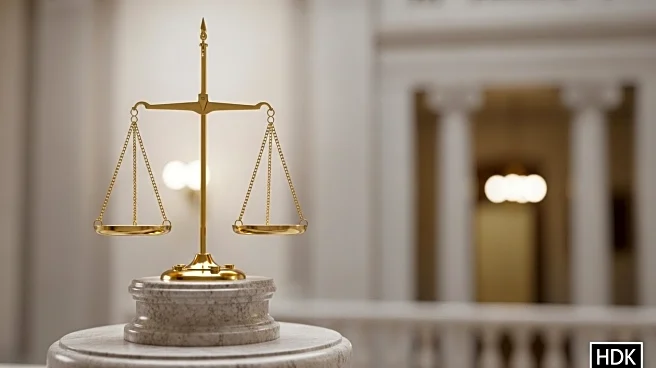What's Happening?
The Trump administration is actively pursuing the deportation of Kilmar Abrego Garcia, a Maryland resident, despite previous errors in his deportation process. Abrego Garcia was mistakenly deported to El Salvador, and now the government is attempting to send him to Eswatini, a southern African country. However, Eswatini, along with Ghana and Uganda, has rejected the idea of accepting him. U.S. District Judge Paula Xinis in Maryland is set to decide whether Abrego Garcia should remain in custody or be released while his legal challenge proceeds. The case highlights the contentious nature of President Trump's immigration policies, with Abrego Garcia's attorneys arguing that the administration is using the immigration system punitively after the embarrassment of his mistaken deportation.
Why It's Important?
This case underscores the ongoing debate over immigration policies under President Trump's administration, particularly concerning deportation practices. The situation reflects broader issues of international cooperation and the complexities involved in deportation processes. The refusal of multiple countries to accept Abrego Garcia illustrates the diplomatic challenges faced by the U.S. in executing its immigration policies. The outcome of this case could have significant implications for future deportation cases and the legal standards applied to them. It also raises questions about the use of immigration enforcement as a tool for political retribution, potentially affecting public perception and policy discussions around immigration reform.
What's Next?
Judge Paula Xinis is expected to make a decision soon regarding Abrego Garcia's custody status. Meanwhile, discussions with other countries continue as the administration seeks a resolution. In Tennessee, a separate legal proceeding is underway, with a hearing scheduled for November 3 to address human smuggling charges against Abrego Garcia. Defense attorneys plan to challenge the inclusion of unrelated allegations in the indictment, which could influence the legal strategy and outcomes in both cases. The decisions in these legal battles may set precedents for how similar cases are handled in the future.
Beyond the Headlines
The case of Abrego Garcia highlights ethical concerns regarding the use of immigration enforcement for punitive purposes. It raises questions about the balance between national security and individual rights, as well as the potential misuse of legal systems for political ends. The broader implications include the impact on U.S. relations with other countries and the perception of American immigration policies on the global stage. This situation may prompt discussions on the need for more transparent and fair immigration practices.








